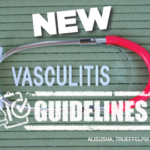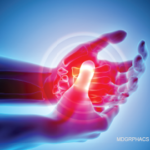NEW YORK (Reuters Health)—Most recent clinical practice guidelines (CPGs) from the American College of Rheumatology (ACR) are based on expert opinion and lack A-level evidence in support of their recommendations, researchers report.
“I’d like to highlight not just for providers but also for patients and policymakers that, even though we in the United States are spending about 18% of our GDP on health care, many of our guideline recommendations are only level C,” Dr. John B. Wong from Tufts Medical Center, in Boston, told Reuters Health by email.
Dr. Wong’s team assessed eight publicly available rheumatology CPGs by evaluating the level (quality) of the evidence base and the class (strength) of the recommendations. They reported their findings online November 27 in JAMA Internal Medicine.
Of 403 recommendations evaluated, more than half were classified as level C (expert opinion, case studies, or standard of care); only one-fourth were level A (multiple randomized clinical trials or meta-analyses); and one-fifth were level B (single RCT or nonrandomized studies).
The proportion of recommendations supported by A-level evidence ranged from 2% for juvenile idiopathic arthritis and 10% for polymyalgia rheumatica to 35% for glucocorticoid-induced osteoporosis and 58% for osteoarthritis.
A median 10% of recommendations specified both level of evidence A and strength class I (benefit much greater than harm), 6% specified level B and class I, and 8% specified level C and class I.
The combination of C-level evidence and class II strength (benefit greater than or equal to harm) was the most common at a median of 30% across guidelines (50% of the rheumatoid arthritis recommendations).
“Our findings that the minority of guideline recommendations have level of evidence A (multiple randomized controlled trials) supporting them are consistent with similar analyses of other subspecialty guidelines, including cardiology, infectious diseases and nephrology,” Dr. Wong said. “Given that rheumatoid arthritis causes substantial morbidity, mortality, and resource consumption, it was most surprising that nearly 70% of the 35 rheumatoid arthritis recommendations were level of evidence C.”
Not all recommendations require level A evidence, e.g., it would be unnecessary to perform a randomized controlled trial of wearing a parachute when jumping out of a plane, so those level I recommendations even in the absence of level A evidence should be considered while recognizing that the evidence supporting them is not of the topmost quality,” he said.
“As our reimbursement system appears to be headed toward value-based performance, it is those level A evidence class I strength recommendations that will or could become performance or quality improvement measures, particularly if a performance gap has been demonstrated in practice,” Dr. Wong said.


